A vegetarian diet, or plant-based diet, is becoming one of the most popular styles of living and eating today.
Not only is it alluring to many because of it’s promises to manage weight but also because it has been shown to improve overall longevity and good health.
Studies also show that eating a vegetarian diet can dramatically improve the environment, lower food costs, and reduce the cost of medical care, should the diet be focused on whole foods versus processed, technically vegetarian, foods.
First, What is a Vegetarian diet? Is it the Same as Vegan?
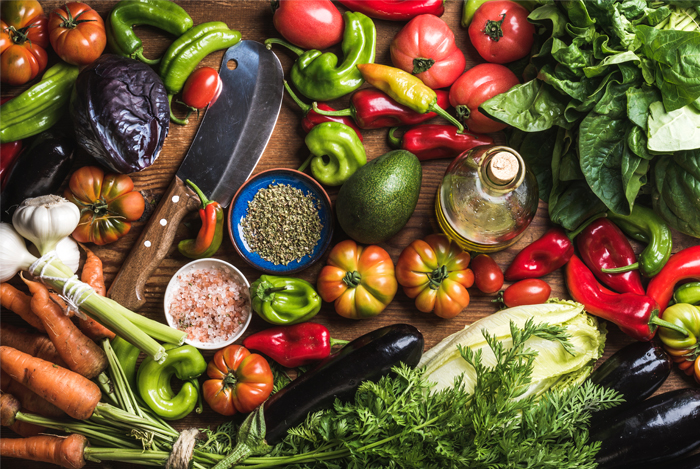
A vegetarian diet is not the same as a vegan diet. A vegetarian diet is based on the premises that one doesn’t eat meat, poultry, or fish. In essence, vegetarians don’t eat the flesh of animals at all.
However, vegetarians may still choose to eat byproducts of animals such as honey, milk and other cow’s milk products such as yogurt and cheese, and eggs. Many vegetarians don’t consume these foods at all, which technically means they eat a vegan diet.
A vegan diet eschews all animal flesh foods and animal byproduct foods. Many vegans also choose to extend their beliefs about eating in a compassionate manner into their lifestyle by avoiding all beauty, clothing, and hygiene products along with items in their home that are not made from animals or contribute to animal cruelty (such as through animal testing).
However, many people simply eat a vegan diet for other reasons than cruelty-free eating, such as solely for their health or the environment.
A vegetarian diet can encompass all varieties of plant-based foods and incorporate some animal-based foods into the diet occasionally as the person desires.
However, if you’re looking to eat more plants and less meat for your health or another reason, there are some key things to be sure you take note of before you begin. After all, if you’re going to change your diet, why not do it the right way, in a way that makes you feel your best, right?
Here are the Benefits of a Healthy Vegetarian Diet:
Not only are these benefits well-researched by multiple health groups or respectable organizations, but vegetarian, mostly plant-based diets are also easy to follow and get started with.
Take note of these 10 tips below for ways to eat a vegetarian diet for optimal health and give it a try this week. You might just be surprised at how easy it is and even how it benefits your budget, energy, weight, and mood!
1. Focus on Produce First
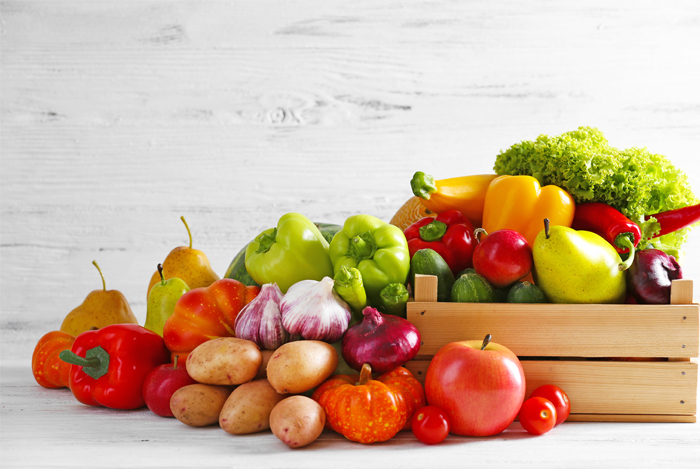
Don’t worry, you won’t be living off fruits and vegetables, but they should be the baseline of what you eat.
While you could technically consume junk foods that don’t have animal remnants in them, that’s definitely not going to make you feel good despite it being vegetarian. So eat more plants, which have been shown to improve longevity, weight, brain health, and more.
For a list of foods to start buying at the supermarket, you can also check out this handy grocery list.
Otherwise, stock up these foods:
- Leafy greens
- All green vegetables
- Peppers
- Onions
- Squash
- Sweet Potatoes
- Gold Potatoes
- Winter Squash
- Any other veggies you want
- All fruits (choose your favorites!)
Next, make sure you consume at least 9 servings a day. That’s right—you’re going to be eating a lot!
Make it your goal to consume 5 one-cup servings of green foods (leafy greens and green vegetables) and you can choose to make the other 3 one-cup servings either fruit or another vegetable. Fruit and yellow and red vegetables provide ample amounts of Vitamin C you need for good health.
Potatoes and winter squash are even one of the best foods you can eat when obtaining Vitamin C and fiber, and they’re also filling so don’t be afraid of them.
Leafy greens help nourish your most important organs, such as your heart, liver, spleen, and colon. Green vegetables are full of fiber and packed with antioxidants along with Vitamin C, potassium, and fiber that you need for good health.
2. Don’t Fear Whole Grains – You Need Them!

Whole grains have gotten a bad reputation the last several years with popular diets such as the Paleo diet and books dedicated to banning grains becoming more popular.
However, no medical research throughout history shows that any food, aside from vegetables and fruits, is beneficial to human health more than whole grains are. There have also never been well-researched studies that show whole grains are detrimental to human health.
In fact, whole grains are a key player when you’re looking to avoid Type 2 diabetes, heart disease, high blood pressure, and even cancer.
It’s true that certain types of individuals react negatively to gluten-containing grains such as wheat, barley, and rye, however, safer grains like rice, quinoa, and even oatmeal can still be safe for individuals to consume while eating a diet free of gluten.
But when it comes to grains, they aren’t equal. So here are some tips that you’ll need to adhere to in order to choose the best whole grains when you’re shopping at the store.
1. Make sure the package says whole grain and contains no flour (which means it’s refined and processed).
2. Choose real, whole grains versus whole grain products like chips, crackers, and bread.
3. Go for the most nutrient-dense varieties of whole grains such as whole oats (rolled, steel-cut, or quick), quinoa, amaranth, brown rice, black rice, and wild rice versus white rice and couscous which are both refined forms of grains and have little to no fiber or vitamins as a result.
4. Start with 2 servings a day and eat up to 3-4 if you desire. While past organizations have recommended higher amounts, if you ate more than 5 servings of whole grains a day, it would be easy to be too full to eat your fruits and vegetables. So work your grains into your meals with fruits and vegetables.
Some great ideas are oatmeal with berries and a chopped apple, quinoa with broccoli, onions and carrots, or some brown and wild rice cooked with red peppers, onions, kale, and sweet potatoes in the slow cooker. Get creative!
5. Cook them properly. Avoid frying or cooking your grains with high heat and oil which can make them unhealthy as it forms unhealthy fats in your arteries and promotes high cholesterol, which whole grains are designed to prevent! Cook the grains in water, a slow-cooker, or bake with them without the use of oil and butter for the healthiest effects.
3. Don’t Try to Cut Back on Calories
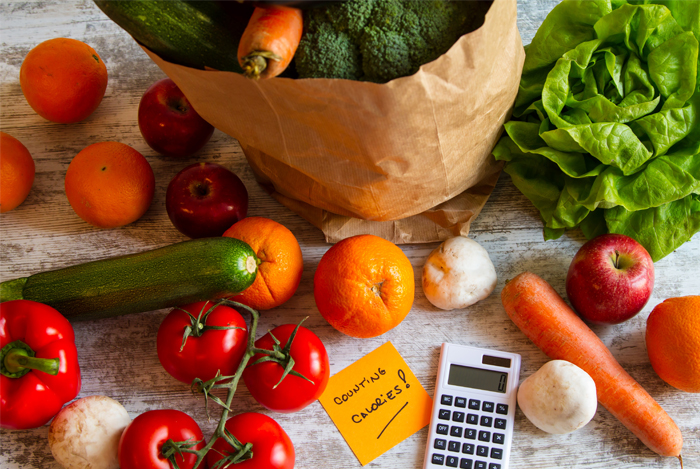
One of the biggest mistakes people make when they attempt to eat a vegetarian diet is calorie restriction. Then they wonder why it didn’t work for them and give up.
While it’s true that you only need enough calories for your specific body weight and activity in order to maintain a healthy weight, it’s also true that plant foods are much lower in calories than animal-based foods making it hard to overeat if you listen to your appetite and eat whole foods.
Some tips to take note of if you don’t want to gain weight are to:
1. Listen to your appetite. Eat when you’re hungry and stop once you’re comfortably full. Do not go hungry.
2. Base every meal off greens or vegetables, fruit and whole grains versus high-fat foods like nuts or too much protein from eggs, chocolate, processed foods, cheese, milk, or other dairy foods.
3. Make sure to get enough fiber which will help keep you full without you having to cut calories or worry as much about gaining weight or going hungry. Fruits, vegetables, and whole grains contain plenty of fiber to keep you healthy while protein sources such as legumes and nuts can also provide fiber.
4. Include Some Vegetarian Protein Each Day
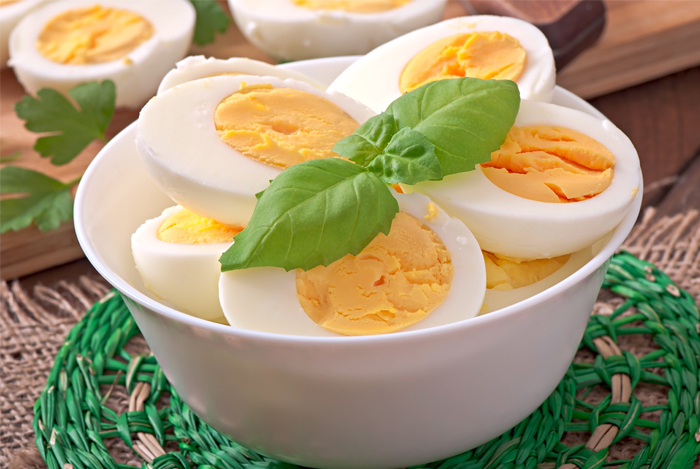
Vegetarian sources of protein include legumes (peas, beans and lentils), eggs and egg whites, yogurt, and some nuts like almonds include protein too. It’s optimal to obtain your protein from legumes first, if you can. They’re low in fat, high in fiber and protein, and will keep you fuller in more optimal serving sizes.
However, if you prefer to eat some animal protein, go with an egg and egg whites, plain low-fat or nonfat Greek yogurt which are the most heart-healthy choices. Avoid cheese whenever possible since it is high in saturated fat and can lead to digestive issues due to the large amount of casein it contains.
It’s also helpful to skip cow’s milk which has been shown to be very detrimental to human health.
Instead, pick up some non-dairy milk to use as a substitute. While it’s not high in protein, it is fortified with calcium just like cow’s milk is after processing.
When it comes to nuts and seeds, remember that nature designed these nuts in shells and hard coatings for a reason: we weren’t meant to overeat them! Consume moderate portions each day which is one ounce, or about ¼ cup of whole nuts or 2 tablespoons of nut butter. Always choose varieties without added salt or sugar for optimal health.
5. Avoid Oil
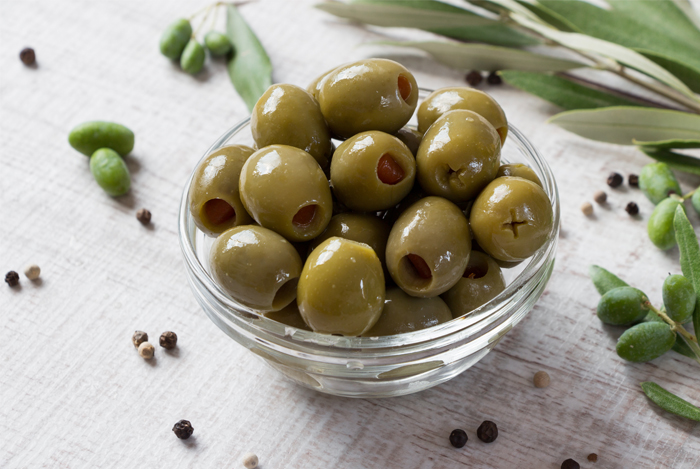
While many popular varieties of diets these days promote the use of oil and some are even trendy and have well-researched benefits (such as coconut oil), it’s overall best to get your fats from whole foods versus processed forms, such as oil.
Oil is just as much of a processed food as sugar or bread, so keep that in mind when selecting your fats at the store. You can get all the vitamins and minerals that some oils contain in the whole food form that it comes from, such as olives or coconut.
For cooking, use broth instead of oil for sautéing and bake instead of fry as many dishes as you can. It’s easier than you think to cook without oil, I promise!
6. Get the Right Cookware
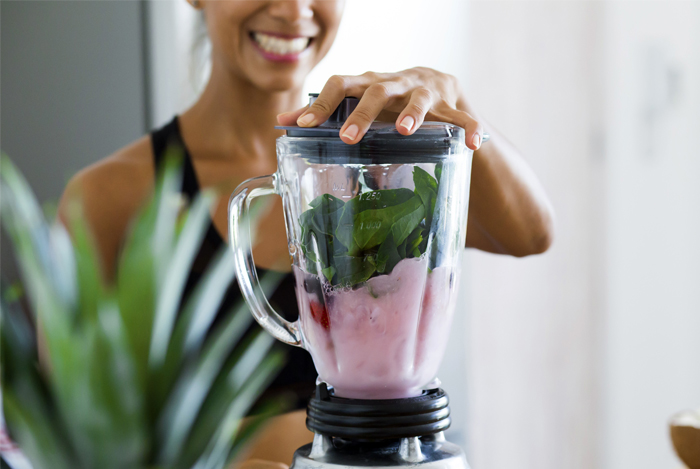
You don’t need a lot of cookware to eat vegetarian, but there are some appliances and tools that can help you eat a healthier vegetarian diet.
The first one is a blender which is great for making smoothies, soups, and quick sauces.
The next is a vegetable steamer or slow cooker which is great for preparing cooked vegetables without much hassle and eliminates the need for oil and frying. It’s also true that cooking in these two manners retains more vitamins and minerals than options such as roasting or frying.
A great chef’s knife, paring knife, and some nice bowls and silverware also make it easy to make a variety of plant-based dishes. Salad bowls, food processors, and pressure cookers are also popular among many vegetarian eaters.
7. Stick to the Science

It’s easy to get caught up in the world of diets and trends and forget about science. Turn to the research when it comes to finding what the healthiest way to eat is.
One excellent, non-profit, non-biased organization that provides free research for the American Public is NutritionFacts.org which provides tons of free videos and research articles in an easy-to-read form.
The Physician’s Committee for Responsible Medicine is also a great organization you can rely on as well for maintaining an optimal vegetarian diet.
8. Try New Foods and Recipes to Stay Motivated

One way to stay motivated is to consistently stay inspired! Recipes and new foods are an awesome way to do both. Next time you go to the store, branch outside your usual fruit selections and try a new one.
Instead of cooking your broccoli the same old way you usually do, try a new option or use a new seasoning!
Cookbooks on plant-based diets are also abundant on Amazon and in bookstores nationwide. There are even books dedicated specifically to transitioning into a vegetarian, plant-based diet if that’s something you’re looking to do.
9. Take a Vitamin B12 Supplement
Vitamin B12 is now recommended by doctors for everyone, not just vegetarians and vegans. Why? Because it’s a bacteria that grows in the soil and our soils have been depleted, meaning the plants and animals that eat the plants often aren’t getting enough.
While some foods like eggs promote that they contain B12, it’s not always easy to tell how much is truly end the egg once it ends up on your plate and how well your body is digesting and absorbing it.
Supplementing with a sublingual Vitamin B12 will ensure that it delivers the crucial vitamin for optimal nervous system health, digestive function, immunity, and brain health directly to your bloodstream where it can be used.
Look for vegetarian or vegan sources of B12 when shopping at the store.
10. Avoid Sugar and Empty Carbs
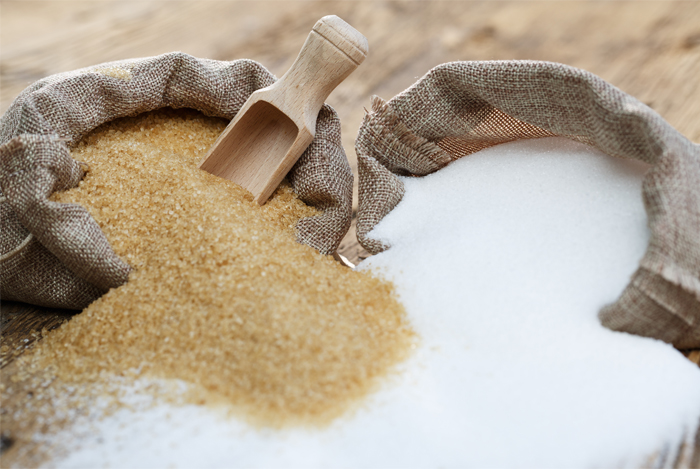
Along with choosing whole grains, it’s also smart to make sure that you avoid sugar and empty carbs like pasta, bread, and crackers which don’t keep you full as much or promote good health like fruit and whole grains do (nature’s candy and best source of carbs).
Many foods on the market that are processed advertise themselves to be vegan, gluten-free, organic and even non-GMO, but that doesn’t mean they aren’t loaded with sugar and refined flours that demean your health. Again, stick to whole foods on a vegetarian diet for optimal health.
11. Maintain a Healthy Lifestyle

No diet out there will remove the negative effects on your health that drinking, smoking, insufficient levels of sleep, and inactivity will.
So be sure you maintain a healthy lifestyle by eating a nutrient-dense diet, avoiding alcohol and nicotine, getting at least 8 hours of sleep each night, and being sure to get some daily activity along with 30 minutes of some aerobic activity like walking at least 5 times per week.
This is optimal living and will keep you in great health along with your vegetarian diet. For more ways to stay healthy, you can also check out these tips to learn more about how to eat healthy while on a budget!
The post 11 Ways to Eat a Vegetarian Diet for Optimal Health appeared first on Nutrition Secrets.
http://www.nutritionsecrets.com/11-ways-to-eat-a-vegetarian-diet-for-optimal-health/
No comments:
Post a Comment